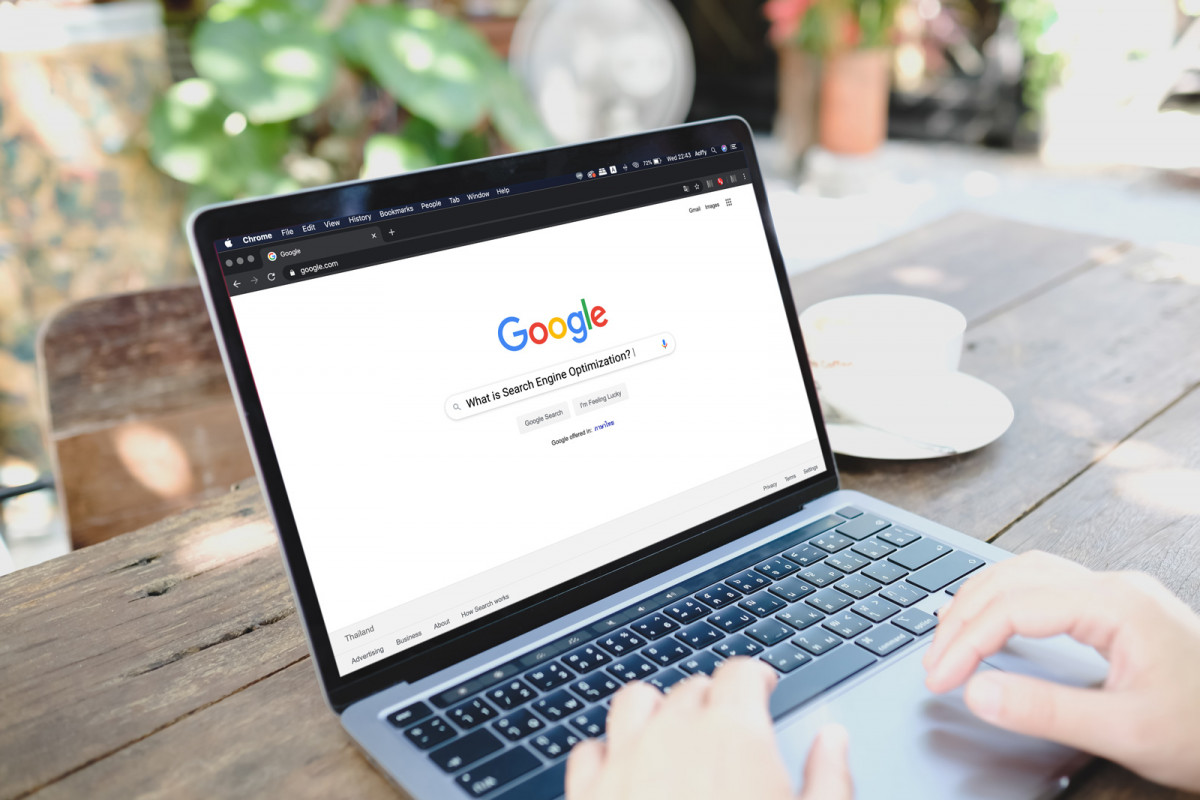What is Search Engine Optimization?
Search Engine Optimization, also known as SEO, is designed to help improve the appearance and positioning of your business in search engines like Google and Bing to drive more awareness for your company and qualified traffic to your website.
SEO Terminology 101
- Search Engine: an information retrieval program that searches for items in a database that match the request input by the user. Examples: Google, Bing, and Yahoo (source: Moz)
- SERP: Search Engine Results Page
- Organic Search Results: unpaid search query results listed on a SERP
- H1s: Header title at the top of a web page
- Page/Meta Titles and Meta Descriptions: short pieces of HTML code on a web page that is not visible on the web page itself but show up as website information in SERPs
Why is SEO important?
Users are more likely to click the links search engines serve towards the top of the page. According to HubSpot, research shows that 75% of users never scroll past the first page of search results. By increasing your SERP ranking, you will appear toward the top of Google search results for relevant keywords and phrases people search. This will in turn aid people to click on your business!
Now let’s review a few ways to upgrade your SEO to improve the quantity and quality of the online audience seeing your brand in searches and visiting your website. Curious about SEO’s ROI? Check this article out on DesignRush about SEO ROI.
1. Selecting the Right Keywords
The first step to establishing an optimized online presence is selecting the right keywords. Keywords are popular words and phrases that people type into search engines (like Google or Bing) when searching for their next adventure.
Once you choose your list of keywords, you can use those words in a plethora of different ways, including content channels like social posts, blogs, and website copy.
2. Optimizing Your Website for Search Engines
After selecting the right keywords to position your business in search engines, the next step is to optimize your website using the keywords you’ve selected.
To optimize your website, we recommend:
- Copywriting for Search Engines (inclusive of Page Titles & Meta Descriptions, Page Headings, Body Content rich with keywords)
- Location Information (i.e. Name, Address, Phone Number, Operating Hours, etc.)=
- Tracking Performance (i.e. Google Analytics, Google Search Console)
3. Establishing Your Online Presence
After optimizing your website for search engines, the next step is to amplify your online presence by creating a profile for your business on as many relevant listing networks as possible.
Your Online Presence is your business’s digital footprint, and the more “Internet real estate” your business takes up online the better! Online listing networks like Google Business Profile, Facebook, Yelp, and TripAdvisor are a great way to increase your digital footprint beyond your website and social channels and improve your online presence.
To optimize your online presence, you should:
- Gather your business and location information
- Claim existing listings, like Google, Facebook, and Yelp, or manually set up new listings
- Update your listings with consistent information and keyword-rich business descriptions
4. Building Links
Link building is the process of creating hyperlinks (also known as “backlinks”) from other websites to your website to improve search engine visibility. Doing so will strengthen your website’s “authority” with Google, and will help you rank better on SERPs. Generally, pages that have more backlinks to them tend to rank higher in search results.
There are a variety of strategies you can use to “build” links for their site, including:
- Creating Useful Assets
- An example of a ‘useful asset’ could be tools & calculators, studies & research, “how-to” guides, infographics, and tutorials.
- Broken Link Replacement
- Finding a broken link on an authoritative site and reaching out to the site owner with a working URL from your site for them to replace the broken link with. The supplemental link you provide should be relevant to the original linking content!
- Guest Blogging
- Offer to write a blog post for an authoritative site, and in return, you can receive backlinks to your site from the content.
- Local Features
- Sponsoring local community events and charities, or receiving a mention in local news are also opportunities for building local links. These sites can have lower overall “authority” but are highly relevant for local businesses.
These link-building strategies will require at least some outreach to get site owners and potential “backlinkers” to hyperlink to your site. This outreach requires a tactful communication strategy and can be time-consuming, so start with a few target sites to build backlinks and think about existing professional relationships you have as opportunities to build backlinks on those people’s websites.
The information I’ve shared here is just the beginning, there is a lot more technical SEO work that can be done for a business and dozens of SEO companies out there. Google is an ever-changing search engine that is constantly shifting how it’s crawling and ranking websites. The world of SEO can seem overwhelming, but if you’re reading this post, you have experts in your corner – us! If you have any questions on how you can work on optimizing your business for search engines, our team would be happy to help. Please contact us if you want to know more!

